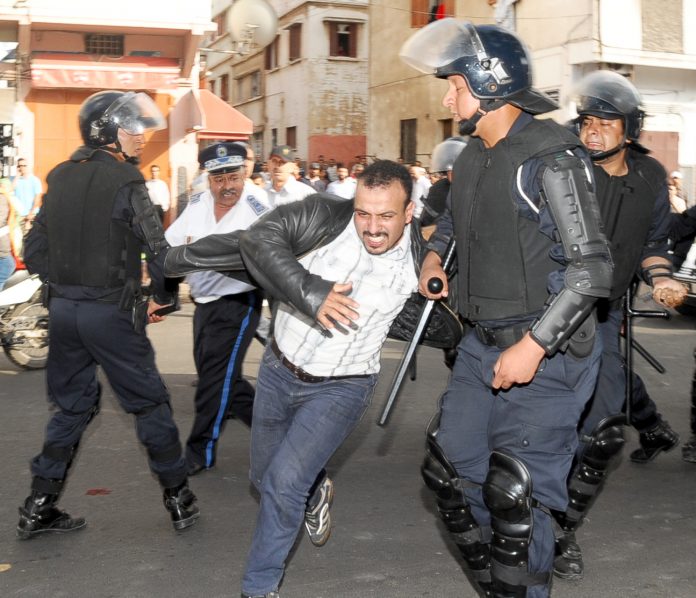The death of two coal miners in Jerada, a small town in northeastern Morocco, has sparked demonstrations across the country.
The two men, aged 23 and 30, were killed while extracting coal from a mine. Their funeral turned into a demonstration of more than 10,000 people.
As reported by Deutsche Welle (DW), Germany’s international broadcaster, the protests in Jerada were seen in the Arabic media as being similar to the Harak al-Rif, or “rural mobility”, protests that occurred after the death of the fish seller Mouhcine Fikri, who was crushed to death in a garbage truck in October 2016.
The rural mobility demonstrations led to many arrests, including protest leader Nasser al-Zafzafi, who is still in prison.
Deutsche Welle spoke with Moroccan journalist Rachid Balghiti about how the protests in Jerada compare to those after Fikri’s death and how the Moroccan state might respond. Balghiti told DW that the crisis in Jerada actually dates back decades.
Hisham Hamani, an activist involved with the demonstrations, told DW that the protesters want electricity prices to be lowered and the social agreement of 1989 to be implemented. The agreement between various trade union centres, which represented the miners in Jerada, was an attempt to find an economic alternative to the mine closure. In reality, however, the agreement has not been enacted since 1998, Hamani explained.
Balghiti blamed the state for the revival of the illegal mining activities, saying that “if the state itself is the one who closed the mine, which is the main supplier to the region, how do they give licenses to those who sell coal? They are the ones who revive these practices in light of the poverty and unemployment of the population,” he told DW.
“The state should be clear. If it needs coal, it must codify and secure the safety of these mining activities or else completely renounce coal as a resource, go to other sources of energy and therefore not give licenses to those who sell coal. Otherwise, the same problem will remain,” he said.
Abdel Ali Hami El Din, a leader of the Justice and Development party, told DW: “In different parts of Morocco are protests that call for improving living conditions, creating job opportunities and decreasing social marginalization, deep issues that Morocco has faced since the failure of the development paradigm that the country has followed since independence. The model has come to an end and must change.”
Referring for calls for King Mohammed VI himself to intervene rather than political officials, Hami El Din noted: “The king is responsible for the stability of the country and he is the guarantor of freedoms and rights, but he can not rely on everything that happens,” but in the end “these institutions must be re-examined.”

